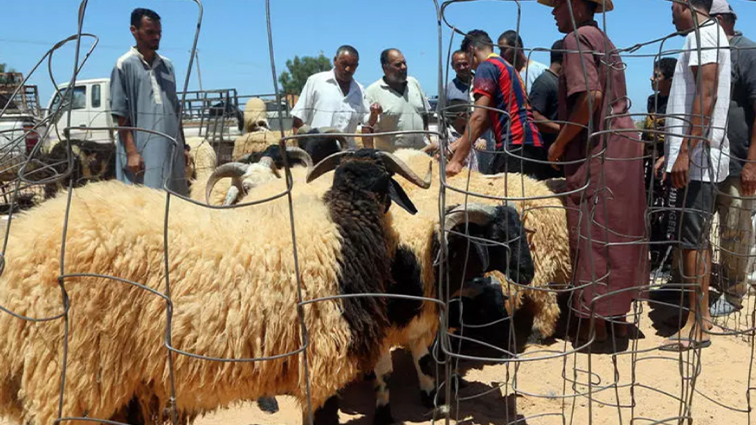The spread of foot-and-mouth disease in Libyan livestock led to a severe meat crisis in Ramadan, after authorities closed some livestock markets.
Meat prices rose dramatically by Ramadan, following the death of a large number of sheep and cattle in the eastern and western regions.
The government tasked with the House of Representatives is struggling to provide vaccines, which prompted it to take precautionary measures, the latest of which was the Ajdabiya market, where the spread of foot-and-mouth disease in the city threatens the country’s livestock, after 47 epicenters of the spread of the disease were detected in Libya.
According to the head of the management committee of the National Center for Animal Health, Dr. Abdul Rahman Ajbil, the disease is spreading at a continuous pace, although it has been limited in scope so far.
With the first cases of infection recorded in weeks, the government mandated by the House of Representatives took a number of measures to confront the crisis, starting with closing livestock markets and preventing their transfer between municipalities, and assigning the Ministry of Interior to implement the decision through patrols, but the continued outbreak of the disease prompted the government to contract for a shipment of vaccines, expected to arrive within the next week, and the Ministry of Agriculture formed field work teams to start vaccinating sheep, cows and goats.
It is noteworthy that this crisis comes after Libya suffered from Storm “Daniel” last September, which caused the death of about 30 percent of livestock in the eastern region, according to government estimates.
The Prime Minister of Libya stresses the need for women to be in a leadership positions
